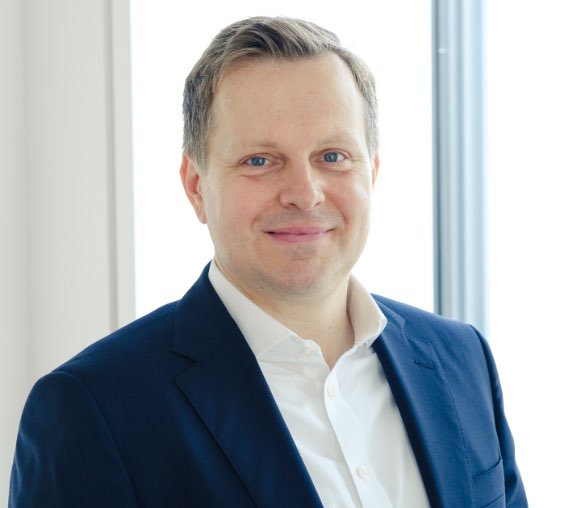Dr. Gerald Podobnik
CFO Investment Bank, Corporate Bank & ESG – Deutsche Bank AG
Sustainable Finance – what is it for you?
Dr. Gerald Podobnik: For me, sustainable financing is the indispensable investment in the future and for future generations. Climate change is a reality and we are seeing the first effects having a drastic impact on nature and therefore on all humanity. Let me give you an example: in the coldest city of Siberia – Verkhoyansk – we saw temperatures of 38 degrees Celsius in June 2020. As a result, the permafrost layer is thawing, releasing methane, which is considered much more potent than carbon dioxide in terms of its damaging effect on the climate. Our job as a bank is to offer our clients sustainable financing options and solutions that address the obvious problems.

In your opinion, what is the key to successfully promoting and developing the sustainable finance trend?
Dr. Gerald Podobnik: Our clients are developing an awareness for how absolutely necessary sustainable financing is. It should be our primary aim to make this an integral part of our corporate culture. Sustainable finance is not a fad that will no longer be chic in a few years, nor is it an end in itself. In fact, the exact opposite is the case. When a company really puts sustainability into practice, it will, for example, reduce its CO2 emissions. This can be done through better filter systems or by sourcing sustainably generated energy. I am aware that these investments can be expensive at first glance. But that’s what we banks are there for – to offer our clients products so they can afford these investments more readily. One aspect of sustainability is very important to me and should not go unmentioned: sustainability inevitably leads to innovation, and innovation creates new jobs. This is often not factored in, but it is of immense importance.
What role does Deutsche Bank play here?
Dr. Gerald Podobnik: Sustainable financing is deeply rooted in our organisation. But that’s not enough for us. That is why we communicated clear and measurable goals. The Bank has reached a cumulative volume of sustainable financing and portfolio of ESG (environmental, social, governance) investments under management of over EUR 200 billion since January 2020 until the end of 2022. To demonstrate our commitment, we set ourselves a new target to achieve cumulative EUR 500 billion in sustainable financing by the end of 2025. Furthermore, Deutsche Bank has announced ‘net zero’ aligned targets for financed CO2 emissions in four carbon-intensive sectors. The four sectors to reach ’net zero’ emissions by 2050 in line with the Paris Agreement on climate change are oil & gas, power generation, automotive and steel. These are just two examples of what we do as a bank.
We develop appropriate products for our clients – products that offer our clients an incentive. That’s important to us. To give an example, if a customer needs a loan, we can offer them the option of linking the loan to specific ESG targets. If the agreed targets are achieved, the interest rate on the loan is a few basis points lower. It’s really a win-win situation – especially for the client.

“Sustainability inevitably leads to innovation, and innovation creates new jobs. This is often not factored in, but it is of immense importance.”
Do you have a personal goal?
Dr. Gerald Podobnik: Sustainable financing is no longer a niche topic; it has reached the masses. My goal is to help our clients establish ESG in all their business areas, at all levels, making it an integral part of their corporate culture. Because without this, you don’t stand to go very far.
„In order to stop climate change – the effects of which have long since been noticeable – enormous investments are needed. This is why we are embracing the idea of private capital also being invested according to the principles of sustainability. The Cluster aims at further promoting this movement.“
Hessian Minister of Economy, Tarek Al-Wazir


